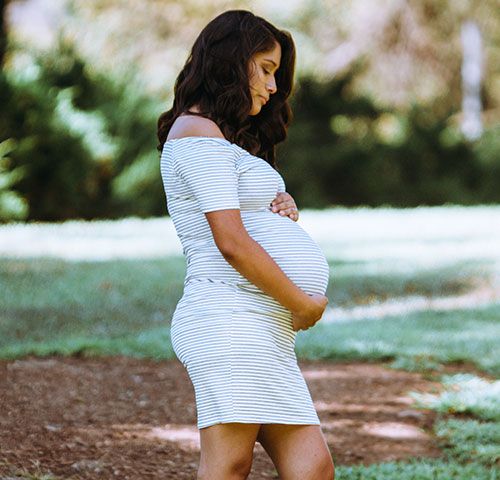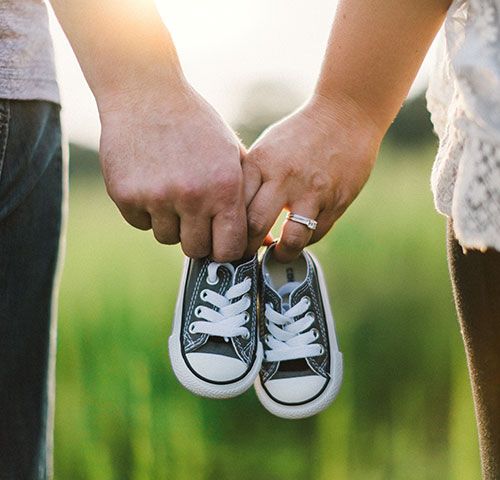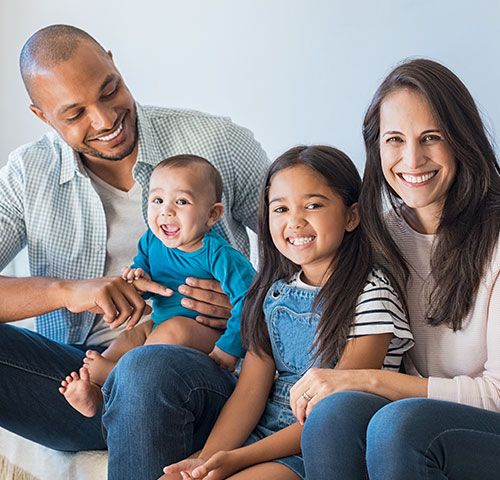Birth Mother Frequently Asked Questions

General Adoption Questions
+ What is closed adoption?
In a closed adoption the agency would handle everything. We would select adopted family, handle everything at the hospital and also release the baby from the hospital.
+ Will medical costs be covered for me? For the baby?
Yes. The agency is responsible for those costs, unless the mother has insurance, if there is a completed adoption.
+ Will there be help with my other expenses? What could that include?
Texas Family Code and our licensing agency, TDPRS, allows the agency to provide reasonable housing costs, clothing, personal hygiene items, transportation to services, medical and legal pertaining to the adoption only, and similar costs that directly affect the overall welfare of the child and the mother.
+ Who has access to my adoption file?
Agency staff and TDFPS (where all Texas agencies receive their licenses) are the only entities that have access to an adoption file except in cases where a subpoena is issued.
+ What exactly do the adoption files contain?
A completed adoption file is divided into three sections: the child, the biological family, and the adoptive family. All documentation, correspondence, forms, legal papers, medicals, and photos are placed in these files.
+ What are sealed records?
Sealed records are the court records (not the adoption agency files) that include, but are not limited to, original birth certificate, relinquishments, termination of parental rights documentation, and adoption decrees.
+ What is open adoption?
Oh, what a question! Truthfully, open adoption and its interpretation may differ from agency to agency, from person to person, from authority to authority.
At AIM, open adoption means any sharing of information between the adoptive parents and the biological parents. There are no state or agency regulations restricting contact between adoptive parents and biological family. All face-to-face contact after placement is based on the trust and developing relationships between the adoptive parents and biological parents.
+ What is semi-open adoption?
Some ladies decide to select the adoptive family but not meet them at all. They may also choose to meet the family before birth at the hospital but after placement decide to not receive any contact.

Questions About The Couple
+ May I select what religion I wish the couple to be?
Yes. You can specify which religion you’d like the couple to be.
The typical follow-up question to that is:
Can I be assured that my child will be brought up in that religion? That assurance can only come from the people that will be responsible for his/her religious upbringing.
+ What is the adoptive family allowed to know about me?
The agency is required to keep your confidentiality; however, you will fill out a complete social history and when you talk to, meet with, or write to the adoptive family YOU can share anything about YOU that you want the family and your child to know.
+ How much does the adoptive family usually want to know about me?
Everything! Adoptive families want to know all of the medical information for the child’s physical health.and they want to know all of the little things (like what is your favorite food, music, class, hobby, etc.) so that the child will be able to have any information he/she wants at different times in his/her life.
+ How much will I know about the adoptive parents (occupation, living area, ages, etc.)?
Each family prepares a very detailed “family album” which includes a letter from the mother and a letter from the father that answers these questions and more (reasons for choosing adoption, marriage, social life, religious activities, vacations, holidays, etc.)
+ What “qualifications” must a couple meet before they are accepted (financial, emotional stability, age, infertility, etc.)?
All of these issues are addressed in the home study process. The main “qualification” is that the couple be a strong Christian couple who proves to have a healthy understanding of adoption and a total acceptance of the child’s biological heritage.
Our couples come from a variety of social and economical backgrounds.from middle income “country” couple to upper income professionals. They are asked to demonstrate financial security and ability to provide for a child with their income, insurance, and financial obligations.
We do not have an age limit because each birth mother has a different idea of the “ideal age” of the parents she chooses for her child. A birth mother who is in her late 30s will usually want an adoptive couple who is a little “older” than herself.
+ Am I permitted to know how long the couple has been waiting for a child, and why the wait?
Yes.
+ Could an adoptive couple be from out of this state, or must they live in the state where I live?
Although the larger majority of our waiting families are from the Houston area, some are in other Texas towns. For birth families that wish for their child to be raised outside of Texas, A.I.M. works with agencies in other states to “network” for families to provide a variety of possibilities to meet the needs and desires of the birth parents who are seeking a family from outside of the state.
Although it is rare, we have had mothers who wished for their child to live in a particular country. In such cases we were able to accommodate that desire.
+ How much can I be involved in choosing the couple for my child?
Totally!

Questions About The Birth Father
+ What if the birthfather will not cooperate in my adoption plan?
If the father does not cooperate, there are legal avenues that must be followed if the mother and the agency feel that they will work together toward the original plan of adoption.
If it is determined the father will upset the process, the mother is counseled about her alternatives. The decision to continue with the process always rests with the mother.
+ What information, if any, is needed from the birth father (birthday, blood type, etc.)?
The birthfather and the birthmother are asked to complete a lengthy social history that includes answers to these questions and many others.
Not all birth fathers are willing to complete the form and the birth mother will take that responsibility so that the child has as much information as is possible.
+ When, if at all, does the birthfather have to be present in the legal process?
A legal husband (whether or not he is the biological father) has as many rights as the mother. A father that is not the husband of the mother has no rights and must establish them through a legal process that includes signing a Statement of Paternity.
The Statement of Paternity is filed in court by the birth father’s attorney. Once the courts complete the judicial process, the father may be determined to be a “legal father.”
A possible father (not the legal father) is asked to sign a Waiver of Interest In Child (which can be signed at anytime). A legal father must wait a minimum of 48 hours following the birth of the child (the same as the mother) before he can complete his paperwork in the adoption process.
+ Does the birth father have to agree to the adoption?
The agency must make every attempt to contact the birth father and offer counseling about his child’s future and the mother’s plan of adoption.
In most cases, the father cooperates with the agency and allows the mother to proceed with the adoption plan. In some cases, the parents work together to plan for their child’s future. In other cases, the father is not cooperative and a legal process must be followed to assure a secure permanent adoption.
The responsibility of handling issues with the birth father lies with the agency and agency staff. AIM employs a male staff person that is usually successful in helping the father feel comfortable enough to understand his options.

Questions About What Happens During The Adoption Process
+ Do my parents have to sign papers in order for me to place my child in adoption?
The only persons required to sign legal documents relinquishing parental rights so that an adoption can occur, are the birth parents of the baby.
The birthfather, the mother’s husband, and the mother are the only parents unless someone else has taken care of the child for a period of 6 months or longer. In that case, the person that has provided for the child might be considered to have some rights about making the decision. Those rights would have to be determined in a court of law.
+ When do I have to sign the adoption papers?
The actual relinquishments (the document used to terminate your parental rights in court) cannot be signed before 48 hours following the birth of a child. The papers may be signed at any time after the child is 48 hours old.
+ Once I sign the adoption papers, can I change my mind?
No. The Relinquishment of Parental Rights is irrevocable at the signing of the documents. It is important that you understand this before you are asked to sign the documents.
+ Will I have to go to court?
No. Your relinquishment papers are your testimony. However, in some instances where the birth father might contest the adoption, you may be required to offer testimony in court. This is extremely rare.
+ If I have to go to court, how long after I sign my papers will this take place?
Under normal circumstances, you will not appear in court. If it is required, it could happen at any time.
+ After the adoption is finalized, will I need to have any further contact with the adoption provider (i.e. agency, lawyer)? If so, under what circumstances?
In truth, you would not have to have any interaction with anyone associated with the adoption as soon as you sign your relinquishments, provided all of the required paperwork was completed.
However, AIM offers after placement counseling and encourages contact with the agency. There is an annual Christmas celebration resembling a “family reunion” that is a great chance to develop peer relationships with biological families who have survived the placement and grief. And, we would love to hear from you or see you from time to time.
+ How soon after the baby is born can it be placed in its new home?
Immediately, if the birth mother’s wishes for it to happen. Some birth mothers want the adoptive parents at the hospital during labor so that their bonding experience can begin immediately following the birth of the child. Other mothers choose to spend some time alone with the child first. This, like all of the decisions, belongs to the mother.
+ Why do some babies go into foster care before they go to adoptive parents?
Although there may be other reasons, babies usually go into foster homes when the birth family needs a few days to be sure of their decision.
+ If my baby goes into foster care, how long would he or she be there?
Usually a maximum of a week. This decision belongs to you, the birthmother.
+ May I write the adoptive parents a letter explaining to them the reasons for placing my child in adoption, and will I have the assurance that they will receive it?
AIM does not withhold mail between the adoptive parents and the biological parents. A letter such as described before is encouraged because we feel that it is important for the parents and the child to know, in your own words, the circumstances surrounding your decision.

Questions about the baby & what happens after the adoption
+ What happens if my baby is born with birth defects?
Will the adoptive parents still want to adopt my baby?
When we agree to work with biological families to help them with their adoption plan for a child, we stay committed to that plan.
We network with many agencies and organizations to seek homes for special needs infants. We cannot be sure that the selected adoptive family will want to adopt your child if it is born with birth defects.
If the selected adoptive parents are unable to accept your child’s limitations or medical concerns, AIM is committed to help you select a family that is prepared to offer your child a loving stable home.
+ Will I be able to see my baby in the hospital?
Yes. This is your baby and we do not take responsibility for making your decisions. You may spend as much time as you need or want prior to the signing of relinquishments.
+ Are my parents, friends, birthfather, etc. allowed to see the baby?
Yes. Of course, this is only at the mother’s wishes.
+ Will I be able to have a visit with my baby before I sign the adoption papers?
Yes.
+ Can I name my baby, and will the adoptive parents keep the name I pick?
All birth mothers have the right and opportunity to name their child on the original birth certificate. In most cases, the adoptive family has had a name picked out for a long period of time. The name could be a family name passed down generation to generation. In those cases, they will choose a name that the baby will grow up with.
When a birthmother feels strongly about the name, we help her work with the adoptive parents to compromise with the mother on naming the child. Some times, the adoptive family asks that the birthmother participate with them to select a name.
+ What may I send with my child (gifts, letters, books, etc.) and will I have the assurance that my child will get these items?
You may send anything that you wish.at placement or following placement. Of course, it will be up to the adoptive parents when to give it to the child. This is one of those things that fall under the “trust” category.
+ May I have pictures of my baby? How often?
AIM pays for a mid-sized newborn picture packet from the hospital. We ask that you share with the adoptive family so that his/her newborn picture can be part of his/her baby book.
The adoptive family usually sends picture 3 times the first six months, then at a year, and usually 1 or 2 times a year after the first year. This practice involves an exchange of information where the adoptive family would also like a couple of pictures of you and any siblings of the child from time to time.
If the birth mother discontinues exchanging information or picking up her mail, the families tend to stop sending.
+ If, heaven forbid, my child died, would I be notified?
Yes, absolutely.
+ If for some reason there is an accident and my child’s adoptive parents are killed, will I be notified? Could I get custody of my child at that time?
We do not have a “cast in stone” answer for this one. We have only had it happen where one of the parents died after the consummation of the adoption.
In those cases, the surviving parent has contacted the agency and asked us to contact the birth family, or the surviving parent contacted the birth family directly.
Once a child’s adoption is completed, he/she is a member of the adoptive family with grandparents, aunts, uncles, and cousins. To loose the parents that have nurtured him on a daily basis and to loose his extended family at the same time could be devastating.
In cases where there is no extended family that is a part of the child’s life, the agency might be considered responsible for making a plan for the child. If this happens, the agency would contact the birth family (if that is the desire of the birth family) and a placement in the birth family would be considered.
+ Will my child be able to get information about me if he/she desire?
Until the child is 18 years old, all available information about the birth family is passed to the child through the adoptive parents who are responsible for the child’s emotional needs.
After the child reaches 18 years of age, the child may receive information directly from the agency. The only information that will be shared is the information that is authorized by the birth family.
+ In the years to come, if my child searches for me, will someone contact me before my child does?
If the child does a search for his biological family through this agency, the agency will offer support and counseling to him/her before contacting the birth family.
We will then offer counseling to the birth family before initiating any phone calls or meeting.
However, in this time of technical wonder, it is possible that the birth family can be located without the assistance of the agency. In those cases, the birth family may be contacted without any preparation.
+ Will my child be able to find me if she/he decided to search for me?
There are different resources available, privately, to initiate and complete searches. If your child explored one of these resources, it is possible that he/she might be able to locate you without any assistance from the agency.
+ How old does a child have to be to search for me?
A child must be 18 years old to initiate a search through this agency. However, he/she could possibly complete a search independently through data bases available on the internet.
+ Will I be able to find my child if I decided I wanted to search for him or her?
With the blossoming of open adoption, a search is rarely necessary. However, the same options are open to initiate a search by you as are available to the child.
We Are Here To Help
Looking to donate?
Click the link below to learn more!




